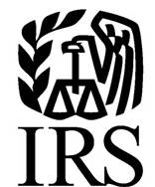 Contrary to loose talk, the Affordable Care Act doesn’t force U.S. citizens to carry health insurance. Thing is, the government will make it increasingly expensive to go it alone.
Contrary to loose talk, the Affordable Care Act doesn’t force U.S. citizens to carry health insurance. Thing is, the government will make it increasingly expensive to go it alone.
In 2014, failing to buy insurance will cost $95 for an individual or 1 percent of annual income, whichever is greater. In 2015, the penalty comes to $325 (or 2 percent). By 2016, the tab will be $695 (or 2.5 percent).*
The cap for 2014 is $2,448 for an individual — a barrier reached only by those with high incomes. (The IRS bases this on the average cost of Bronze level insurance plans.) For a family of five, the cap would be $12,240, the IRS said in July 2014.
In government-speak, that’s the “individual mandate penalty” or the “shared responsibility” fee.
You’ll have to pay that penalty with your annual taxes in 2015. And, yes, the IRS is in charge of enforcement. Total penalty collections will be about $7 billion in 2016, the government estimates. For those who do not pay, the penalty can be taken out of any tax refund due.
“Many Americans do not realize the extent that the Internal Revenue Service will be involved in the implementation of the Affordable Care Act,” said J. Russell George, the U.S. Treasury Inspector General for Tax Administration.
Tax forms will require some sort of proof you have qualified health insurance. Insurers will be required to provide their customers with documentation that will help them demonstrate they had coverage. Those with hardship exemptions will need to provide the “Exemption Certificate Number” provided by the federal health insurance marketplace.
Penalties take into account gaps in coverage that last less than a year: “The amount of any payment owed takes into account the number of months in a given year an individual is without coverage or an exemption,” the IRS says.
The first tax returns requiring the certification will be due by mid-April 2015 for the year 2014.
 A recent survey found that two-thirds of consumers didn’t find the $95 tax penalty sufficient incentive to buy insurance. Only 8 percent said the penalty would make them take insurance.
A recent survey found that two-thirds of consumers didn’t find the $95 tax penalty sufficient incentive to buy insurance. Only 8 percent said the penalty would make them take insurance.
Why does the government care about participation in health insurance, a 100 percent personal decision until now?
“Essentially the idea is if you don’t buy health insurance you’re increasing costs for the whole health care system,” says David Gamage, a tax expert at the Berkeley Law School who worked on the particulars of Obamacare.
The concept is to distribute the burden of national health care costs. That burden increases with the addition of people previously rejected for health insurance and those who could not afford the premiums.
Some people don’t have to carry health insurance, but they’re in a distinct minority. Exempted groups include:
- Those who would pay more than 8 percent of their income for insurance.
- People whose incomes fall below the threshold required for filing federal income taxes. There also is a general hardship provision.
- Those who qualify for religious exemptions. These groups would be conscientiously opposed to accepting any insurance benefits, or providing a health-care sharing ministry (such as the Amish or the unregulated Christian program Medi-Share).
- People in jail or prison.
- Native Americans who are members of tribes.
In December 2013, the Obama administration issued a one-year exemption for people whose insurance was cancelled as not meeting the essential health benefits.
In addition, people who are between health insurance plans for less than three months do not pay penalties — the so-called “short coverage gap.”
State health insurance marketplaces will be able to provide certificates of exemption for many of the these categories. (Get the federal health insurance exemption form.) People who do not have to file tax returns are automatically exempted.
The Congressional Budget Office estimates that between 18 million and 19 million uninsured people in 2016 will qualify for one or more of those exemptions. About 30 million nonelderly residents will be uninsured in 2016, the CBO says.
The law also applies to senior citizens, most of whom have minimum essential coverage for every month they are enrolled in Medicare.
For those who don’t pay the penalty, the Affordable Care Act offers some protection from the IRS’ wrath: “In the case of any failure by a taxpayer to timely pay any penalty imposed by this section, (the) taxpayer shall not be subject to any criminal prosecution or penalty with respect to such failure” (section 1501). That means no wage garnishment. The Obamacare fine rolls over to the next tax year, apparently — with interest charges.
Most large businesses also will pay a penalty for not providing health care benefits, or separately, not providing affordable coverage.
For businesses with more than 50 full-time employees, the penalty for not providing health insurance is based on a formula: $2,000 per year per employee, less 30 employees.
Small businesses with fewer than 50 full-timers are exempt. This has led to some businesses cutting workers’ hours below the 30-hour cutoff point. (There is no penalty for part-time employees not offered coverage.)
The California insurance exchange offers help and incentives via its Small Business Health Options Program.
* After reaching the $695 mark, individual penalties will be inflation adjusted. An overall cap will apply to family payments. The penalty for children will be half the adult rate.



Recent Comments